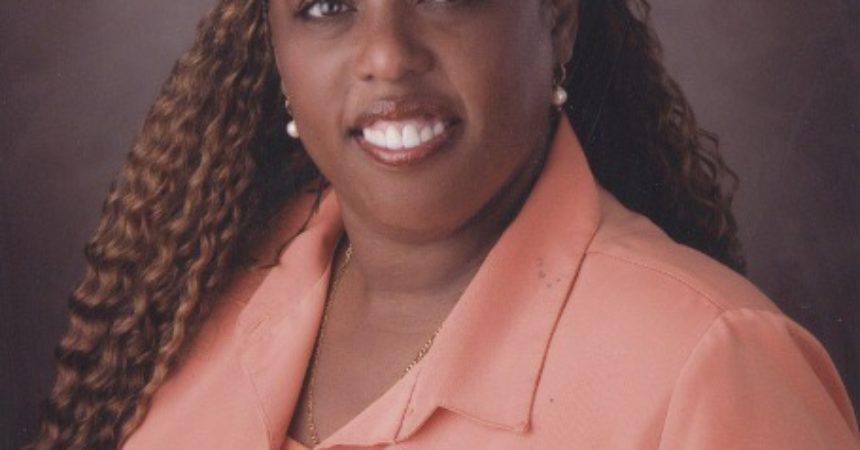First Black geophysicist changing test outcomes at FAMU
By Cilicia Anderson
Outlook writer

Dr. Edith Davis
When the entire fifth grade class at Parkdale Elementary School in Waco, Texas, failed the state science exam in 2005, the school administration was desperate to get some help.
It turned out that a college student had the solution.
Edith Davis, who was then a doctoral student at Baylor University, responded to the school administration’s plea. Her teaching approach turned out to be the right one.
Thus, the beginning of her Micro-Spiral Method of teaching that allows students to retain much more of what they’ve been taught.
Within three months, the same students who had failed the science test showed a drastic improvement in their test scores.
Fifteen years later, Davis, who holds a doctorate in Education Curriculum and Instruction, Science Education as well as Research, has brought her teaching technique to FAMU. The outcomes are impressive with a 99 percent success rate among her students.
Davis wasn’t even a teenager when she began to find the answers that are helping her change classroom performances. In part, she said her hypotheses come from her being inquisitive.
“When I was twelve, I had a theory about the heart because I noticed that reptilians had a much longer lifespan but their metabolism was slower and so their heart rate was lower,” she said. “I actually went to the slaughterhouse and got a heart.”
What she discovered set the stage for Davis to attain many incredible accomplishments. Most notably she became the first known African-American female geophysicist in the United States at age 24.
The distinction caused a bit of a dust up after a writer with the Pensacola Journal published her accomplishment.
However, Davis clarified any confusion.
“He (the reporter) said he wanted to find out more about African-American geophysicists,” she said. “The spokesperson from the Geologic Institute, which was established in 1948, said that they believed I was the first. I think what they meant by that, because I get a lot of pushback on that sometimes, is that I was the first with the masters in geophysics but I’m sure there were people maybe that started off as geologists and then they went into the geophysical realm of it.”

While former Tallahassee Mayor Andrew Gilliam (left) looked on, children at a local kindergarten got an opportunity to experience Dr. Edith Davis’ original mnemonic and the micro-spiral method of teaching.
Photo special to the Outlook
Ebony magazine also published an article on Davis when she worked for Mobil Oil Corp in 1984 doing oil exploration.
During her stint with the Mobil Oil project, met her mentor Juliet Shepard, who gives Davis high marks for her accomplishments.
“She’s a person of great dedication, of great energy, she takes the initiative and she is very compassionate about science and particularly getting more people involved in science education, as well as working with science and the private sector,” Shepard said. “I think her story will encourage more women and particularly more minorities to follow with the STEM careers and other things of science and technology.”
Since coming to FAMU in 2009, Davis has drastically changed the quality of learning. The success of her students is due to her creation of the Micro-Spiral Method, a way of teaching that makes it easier for students to retain information. It’s the same technique she used to teach the Parkland students which resulted in a 45 percent passing rate for African-American students, 24 percent with Hispanics, and 25 percent with White students.
From the outset, Davis wanted to master the micro spiral curriculum.
“I was extremely focused when I got to the doctoral level and I could quickly identify what I’d be interested in, which was the spiral curriculum. What was powerful about it was, as I sat, I said to myself, ‘this is how we really learn.’
“We try to say that when we learn linearly we master something, and then we move on to something else but we really don’t master anything. What we do is we learn as much as we can and then we move on to something else but over time we come back to that subject area then go deeper and gain a deeper understanding with each iteration so it’s like a spiral.”
The inspiration that Davis got when she was a student was enough, though.
“I went micro, I went inside the classroom and spiraled the lesson, the lesson plan, the activity and the reading, the whole learning experience,” she said. “I came up with the hypothesis, I said I think that this can help us with the retention and the deeper understanding of concept knowledge and skills.”
Davis is creating tools for students that will assist them in their studies such as a mnemonic that her students recite every class. She is also developing a Micro-Spiral app that will help students gain a better understanding of what they’re learning in class.
Davis developed a passion for teaching early by watching her mother, Ester Williams. She was a teacher at McArthur Elementary in Pensacola, Florida and for the Department of Defense in Germany.
Williams, who taught math and science, nurtured her daughter’s passion for science and learning.
“She did so much experimenting, I thought she was going to become a doctor or surgeon,” Williams said. “She was a good girl, she really was. She loved people and animals, anything dead or sick she’d get them and wrap their legs up and bring them in the house.”
Davis grew up in a rough neighborhood, but she has defied the odds through her pursuit of an education.
Her childhood was spent attending catholic schools and many times, she was the only Black in her classes.
“I quickly learned at a very young age that there were two different worlds; the world of the poor, the world of people locked into a system where there’s not very much hope, not much of a life and then this other world of privilege and power and education,” Davis said. “Education was the key so I’m glad I learned that lesson at a very young age because it made a big difference in my life.”
Today Davis continues to assist students and provide ways for them to further their education. Specifically, she has been aiming to inspire minority women in Science Technology Engineering and Math (STEM) fields to advance their careers.
Davis was awarded two National Science Foundation grants for over $555,000, money that she is using to get more females involved in STEM studies. The idea has the backing of Dr. Allyson Watson, Dean of FAMU’s College of Education.
“Dr. Davis has a vision to increase science achievement for our children using the micro-spiral method,” She said. “Her passion for science education is infectious. Some of Dr. Davis’ students are now in China and the micro-spiral methods as well as her mnemonic are being spread all over the world.”









